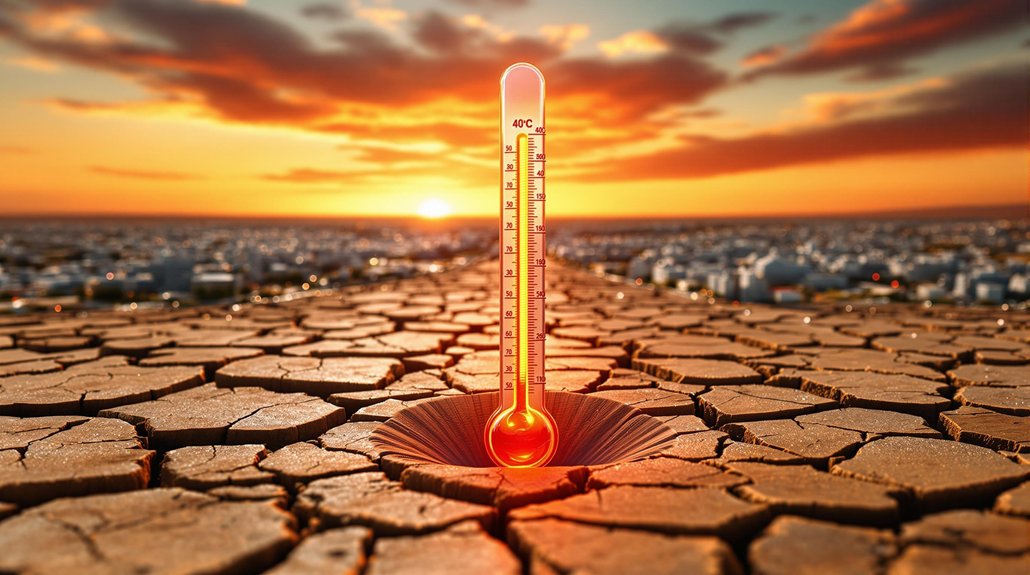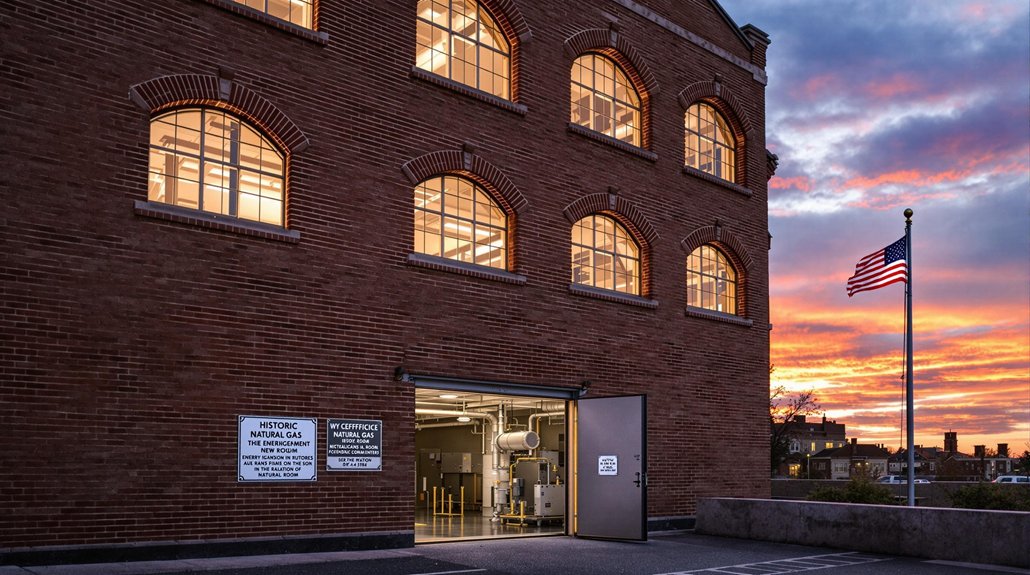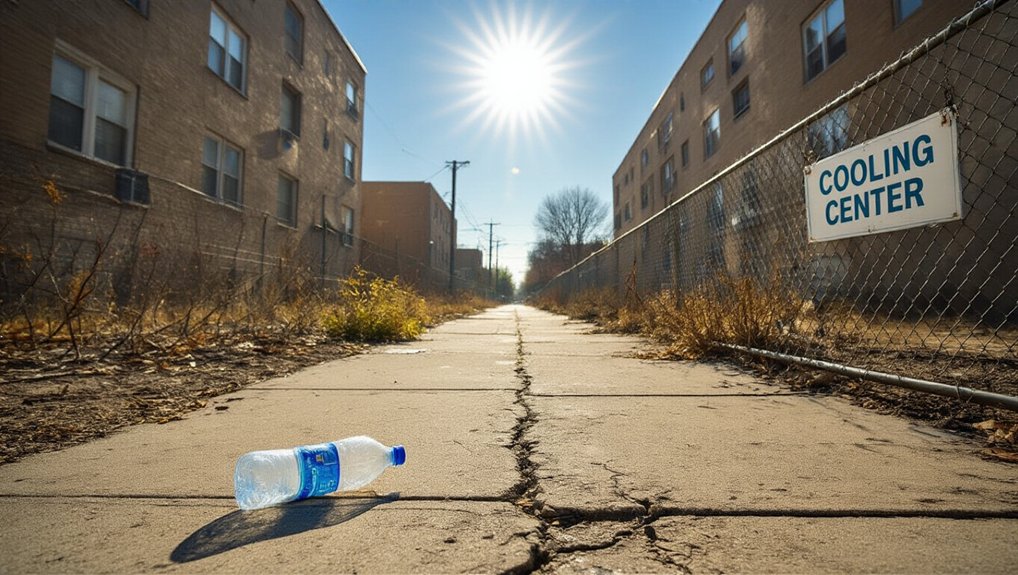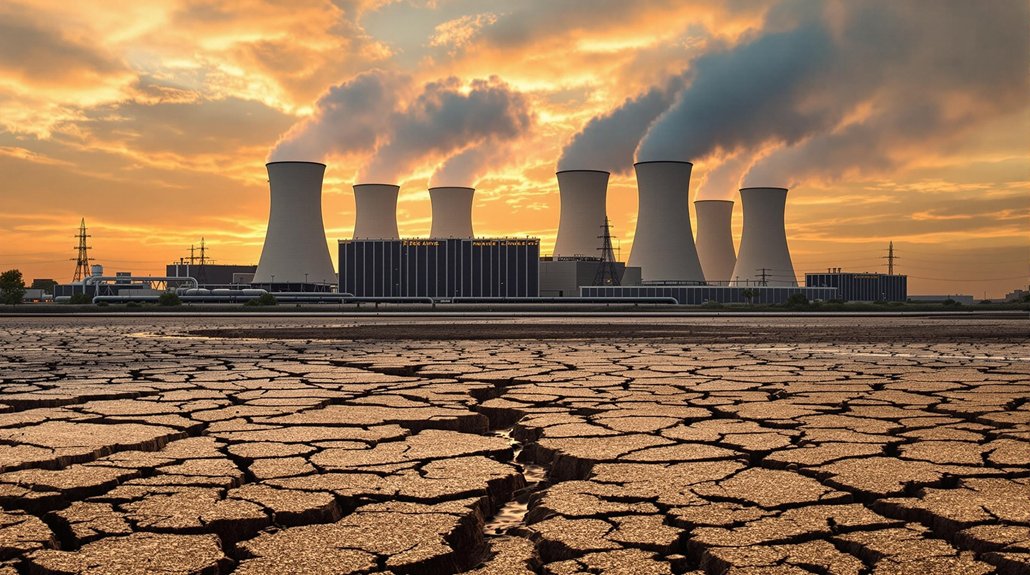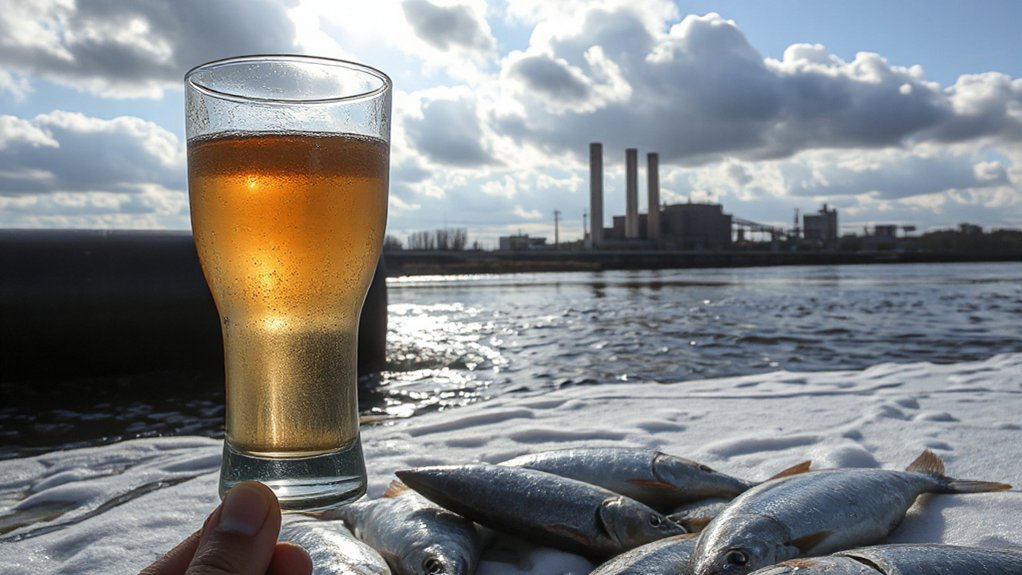Human bodies have hard limits against extreme heat. When core temperature exceeds 40°C, organs fail and death follows. High humidity makes things worse—sweat can’t evaporate. The elderly, children, and those with health conditions? Extra vulnerable. Heat’s economic punch is brutal too: $2.4 trillion annually by 2030. Heatwaves already kill more Americans than hurricanes and tornadoes combined. The numbers tell a sweaty, uncomfortable truth.
While scientists continue to debate the finer points of climate change, the human body isn’t waiting around for consensus. Our biology has limits. Hard ones. When core temperature hits 40°C (104°F), things fall apart fast—organs fail, systems crash, people die. Not exactly complicated.
The math is brutal and straightforward. For every half-degree Celsius your core temperature rises, your heart beats ten times more per minute. Imagine your heart as an engine revving higher and higher with nowhere to go. Meanwhile, you’re sweating buckets, losing electrolytes, cramping up. Fun times.
Heat turns our hearts into redlining engines, racing faster with each half-degree rise while our bodies literally melt down.
Heat doesn’t discriminate, but it does play favorites. The elderly can’t regulate body temperature like they used to. Children’s systems aren’t fully developed. Got diabetes or heart problems? You’re first in line for heat’s worst effects. Working construction in Phoenix or farming in California’s Central Valley? Good luck with that.
Let’s talk money, because apparently that’s what makes people care. By 2030, extreme heat is projected to drain $2.4 trillion annually from the global economy. With extreme weather events doubling in frequency, the economic toll is already reaching unprecedented levels. Workers slow down. Productivity tanks. Air conditioning bills skyrocket. But hey, at least the beach sounds nice, right? Except you can’t even enjoy that when it’s too hot to leave your home.
The kicker is how heat and humidity tag-team against us. High humidity means sweat doesn’t evaporate. No evaporation, no cooling. Your body’s main defense system? Useless.
Cities have it worse—concrete jungles trap heat like giant ovens. Urban residents cook while suburban neighbors merely simmer. During heatwaves, hospital admissions spike dramatically. Mortality rates jump within days of temperature spikes, not weeks.
We’re built to handle a remarkable range of conditions, but extreme heat pushes against our fundamental biological constraints. When temperature and humidity combine to overwhelm our cooling systems, our bodies aren’t being dramatic—they’re reaching their breaking point. That’s not politics or opinion. It’s just physiology. Plain and simple. It’s a sobering reality that heatwaves cause more annual deaths in the United States than all other natural disasters combined. The numbers are staggering globally too, with 489,000 heat-related deaths occurring annually across the world.
